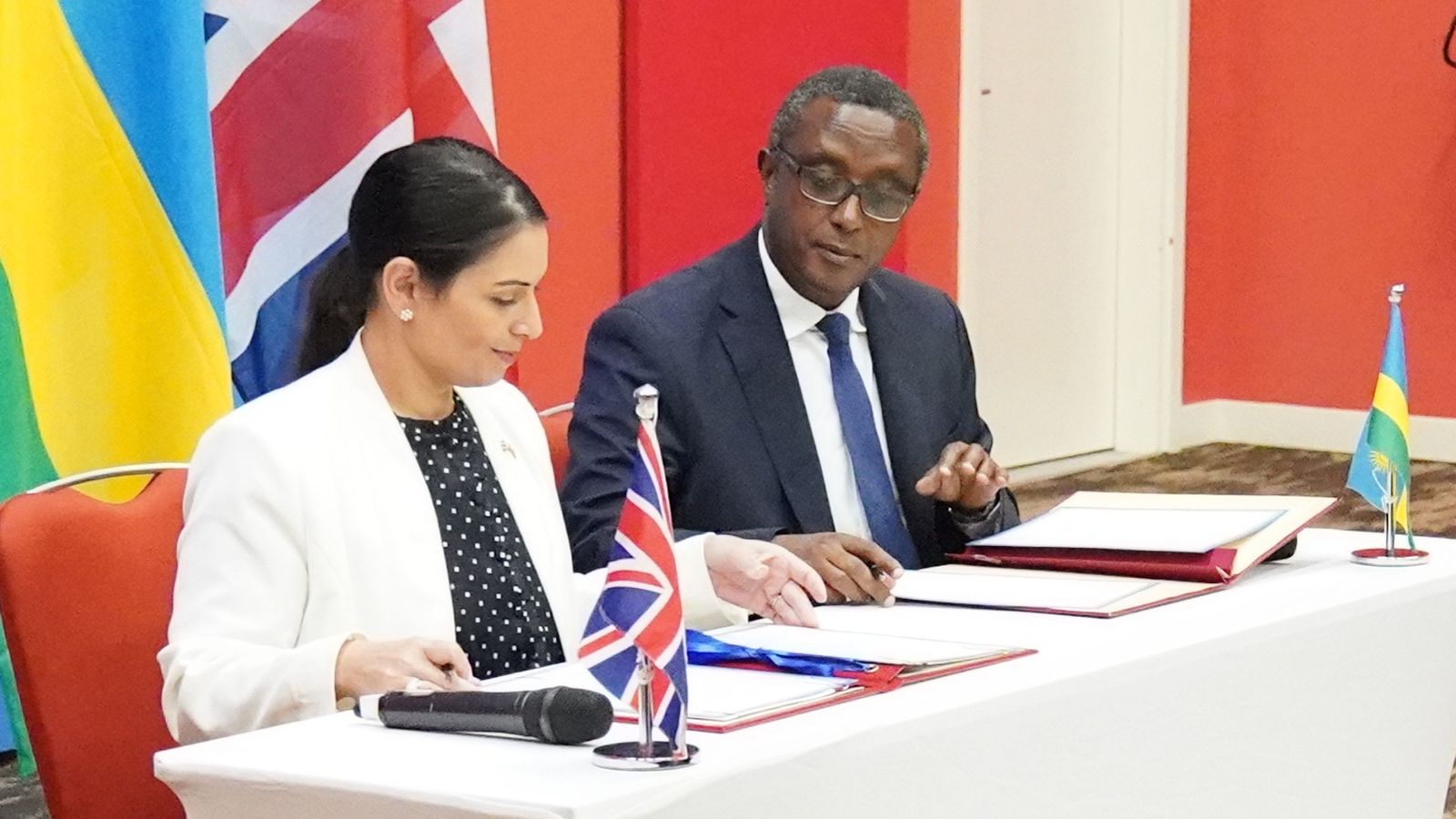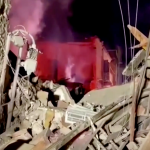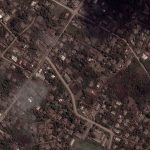In our analysis of the government’s new plans to send asylum seekers to Rwanda, we’ve looked at the moral and legal implications as well as the cost.
There is one thing we’ve overlooked, though, and that is how those changes will impact the country which the government says will process “tens of thousands” of asylum seekers travelling from Britain.
After Priti Patel’s signing ceremony and the bullish declaration that this would be a “world first”, we ventured outside our conference centre to try to speak to normal Rwandans.
Read more: Why are migrants being sent to Rwanda and how will it work?
Most declined to comment, weary of stopping to speak to a camera, but one young man we found at the market said he felt like anyone – black, white or otherwise – would be welcome in Rwanda.
“I can encourage all of the world to come to Rwanda,” he told us.
Eric, a taxi driver we met, was also supportive of the scheme.
‘We will get there’: Child who fled two wars trying night after night to make it to Britain from camp in northern France
Rwanda: First glimpse inside the centre that will house Channel migrants
Why are migrants being sent to Rwanda and how will it work?
An avid follower of the news and current affairs, he says he read about the partnership online in the morning.
“They may be called migrants or whatever, but they’re just people,” he said.
“We’re all one human race.”
Read more: First glimpse inside the centre which will house Channel migrants
Some politicians in the country disagreed, though.
The nation’s opposition leader felt otherwise, arguing Rwanda shouldn’t be dealing with a British migration backlog when they face issues of their own.
Speaking to us on Zoom, Victoire Ingabire said: “The population has woken up to the deal that has been signed – nobody knew about it.”
“We’re not ready,” she added.
“Because if our people don’t have enough to eat, if our kids or Rwanda’s kids don’t have the possibility of going to school because of the poverty, how will the Rwandan government give education to the kids of refugees?”
If this scheme goes ahead, those questions she asks will become even more pressing.






















